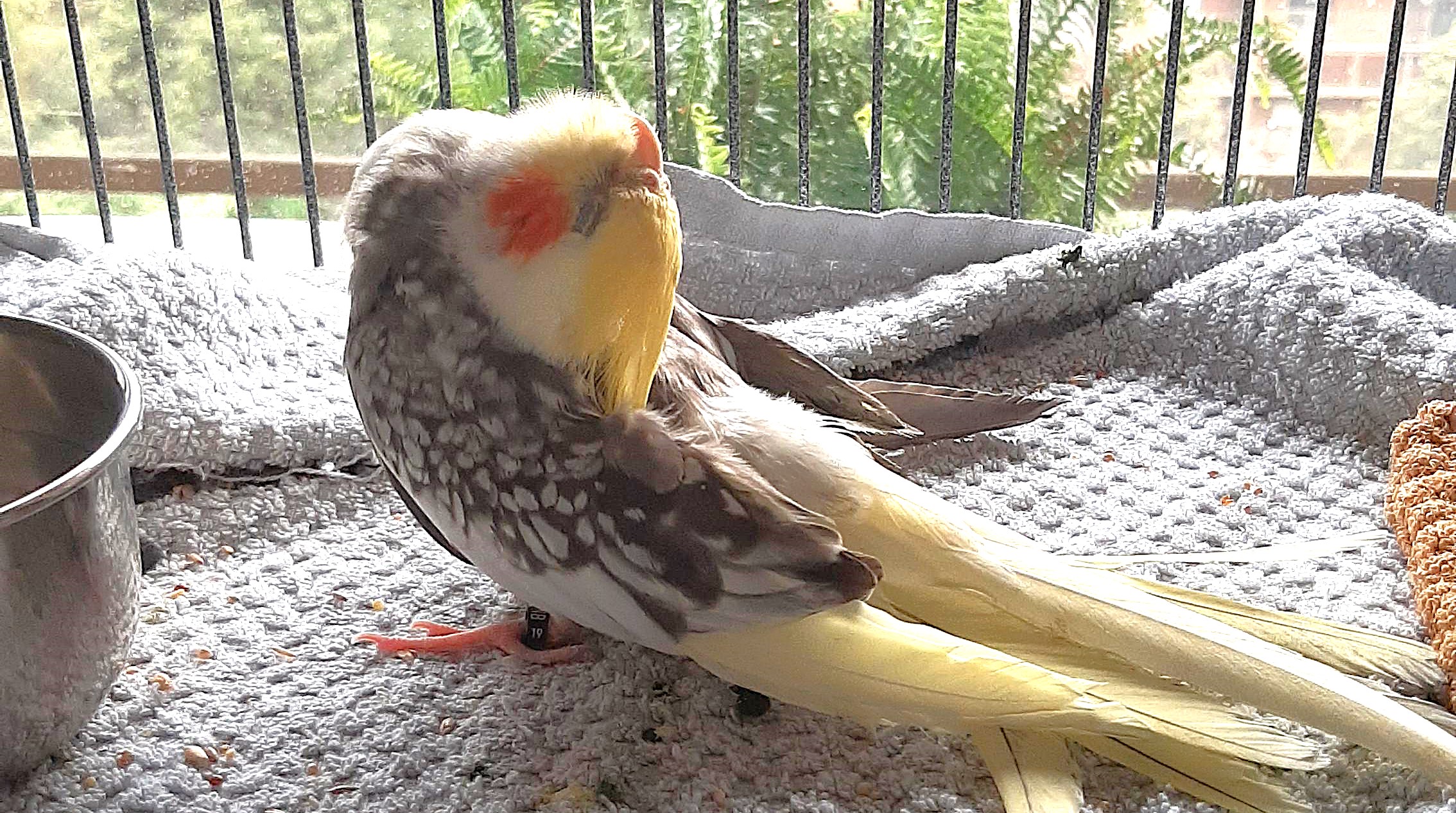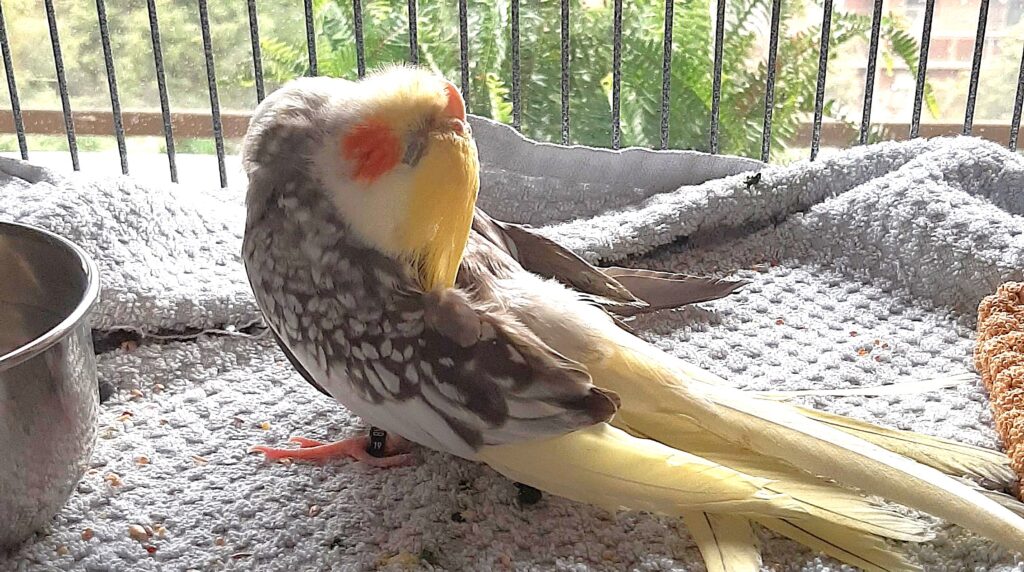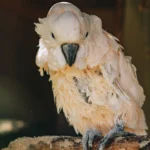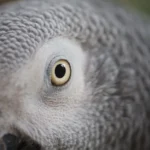
An Overview of Stargazing (Head Twirling) in Parrots
Stargazing, also known as twirling, is a peculiar syndrome observed in various bird species, including finches and even large macaws.
This condition, characterized by abnormal head movements and orientation, can have serious consequences if left untreated. In this article, we will explore the causes, symptoms, potential treatments, and preventive measures for stargazing in birds.
Jump To Section
What is Stargazing
Stargazing is a condition where birds exhibit repetitive and abnormal head movements. Affected birds often throw their heads back, sleep with their heads between their legs, rotate their heads in circles, or gaze upwards. It can occur suddenly, even in birds with no previous history of health problems. Finches are particularly susceptible, but other parrots have also been known to develop this condition.

Progression and Consequences
If left uncorrected, stargazing can progress and lead to severe complications. Birds may lose their ability to fly, experience loss of balance and equilibrium, fall off perches, have difficulty moving within their cage, and struggle to find food and water, ultimately resulting in starvation.
Causes of Stargazing
The exact cause of stargazing remains unknown, but several factors are suspected to contribute to this syndrome. These include:
Egg positioning: Poor positioning within the egg or overall poor egg condition could potentially result in stargazing, although this is more relevant when the condition is present from birth.
- Viral/Bacterial infections: Some viral or bacterial infections, such as bird flu, have been associated with stargazing. For instance, turkeys affected by bird flu may exhibit symptoms like loss of appetite, lethargy, and signs of stargazing.
- Yeast infection: Yeast infections have been suggested as a possible cause of stargazing, although further research is needed to establish a definitive link.
- Chemical imbalance: Imbalances in the bird’s body chemistry can also contribute to the development of stargazing.
- Nutritional deficiencies: Inadequate vitamin and mineral intake, particularly deficiencies in vitamin D or an excessive amount of calcium, may lead to stargazing. Providing a balanced and nutritious diet is essential.
- Genetic predisposition: There is evidence to suggest that a genetic predisposition could contribute to stargazing. Breeding birds with this condition should be avoided to prevent passing it on to future generations.
- Inner ear problems: Issues with the bird’s inner ear, which affects their sense of balance and orientation, may play a role in stargazing.
Treatment Options
While no definitive cure for stargazing exists, some treatments have shown promise in managing the condition. Please note that these treatments are only for reference – as stargazing can be caused by a variety of issues, it is not recommended that you administer these drugs to your bird without the advice of a qualified vet.
- Nystatin: This antifungal medication has been reported to be effective in certain cases of stargazing, particularly when a yeast infection is suspected.
- Trimethoprim Sulfa: Antibiotic treatment with trimethoprim sulfa has demonstrated positive results in addressing stargazing symptoms, particularly when bacterial infections are involved.
- Vitamin B12: Supplementing with vitamin B12 can help strengthen the nervous system and potentially alleviate stargazing symptoms.
- Enhanced nutrition: Providing a well-balanced diet rich in essential vitamins and minerals can help correct nutritional deficiencies that may contribute to stargazing.
Prevention Measures
Preventing stargazing and other bird diseases involves taking proactive steps:
- Breeding practices: Avoid breeding birds with a known genetic predisposition for stargazing to prevent passing on the condition to offspring.
- Optimal nutrition: Ensure birds receive a healthy and well-rounded diet to prevent nutritional deficiencies.
- Clean environment: Maintain a clean and hygienic living environment for birds, including providing uncontaminated water and clean air.
Conclusion
Stargazing, or twirling, is a perplexing syndrome observed in various bird species. While the exact cause remains elusive, potential factors include genetic predisposition, infections, nutritional deficiencies, and more. While no definitive cure exists, treatments such as antifungal and antibiotic medications, along with enhanced nutrition, can help manage the condition. By adopting preventive measures and promoting overall bird health, we can minimize the occurrence of stargazing and safeguard the well-being of our avian friends.
References
(2021). Sick Bird Symptoms: Circling, Head Twisting, Unnatural Head Positioning. Beauty of Birds. https://beautyofbirds.com/head-twisting-twirling-stargazing/
(2017). Twirling, Stargazing, Flamingo Effect. Lady Gouldian Finch. https://www.ladygouldianfinch.com/twirling-stargazing.aspx
Black, Doug BVSc(Hons) MACVSc (Avian Health). 2010. “TWIRLING” – A POSSIBLE SYNDROME IN GOULDIAN FINCHES (Erythrura gouldiae) [PDF document]. Retrieved from https://www.aavac.com.au/files/2010-04.pdf
Parrot Junkie www.parrotjunkie.com
Copyright © 2021-2024. All rights reserved.



Be the first to leave a comment